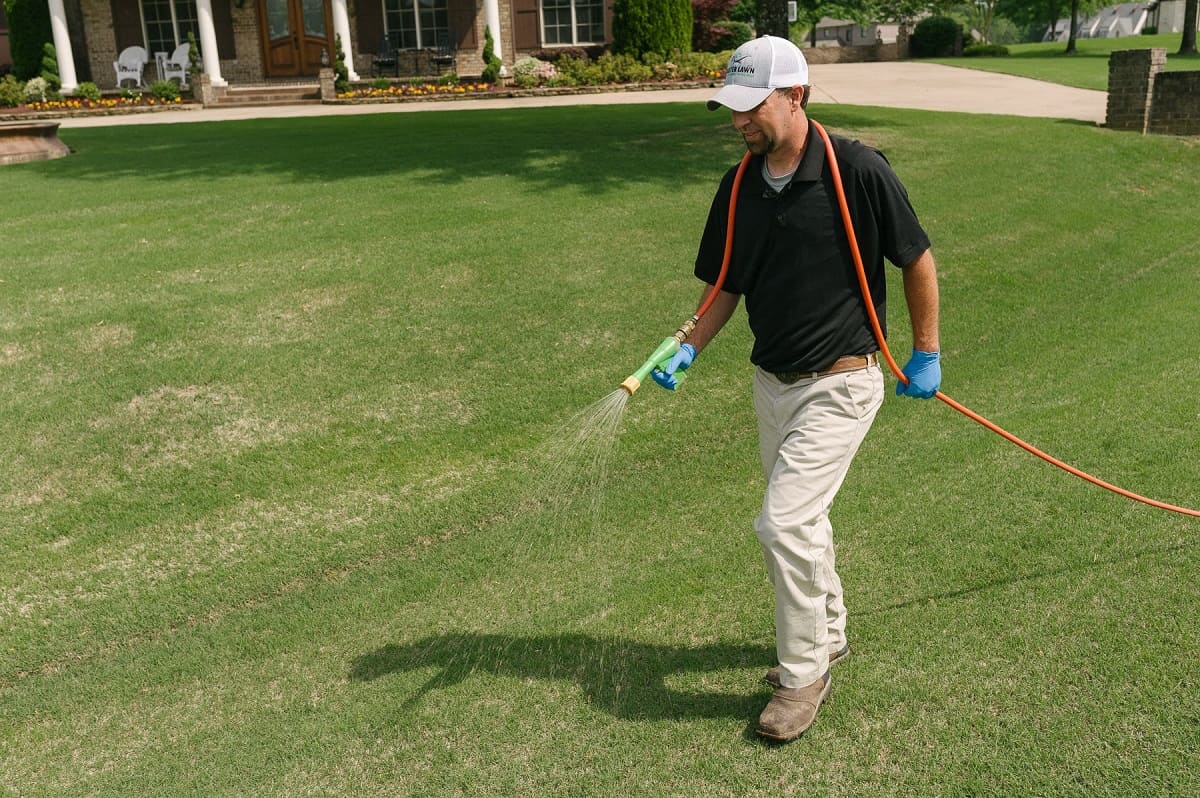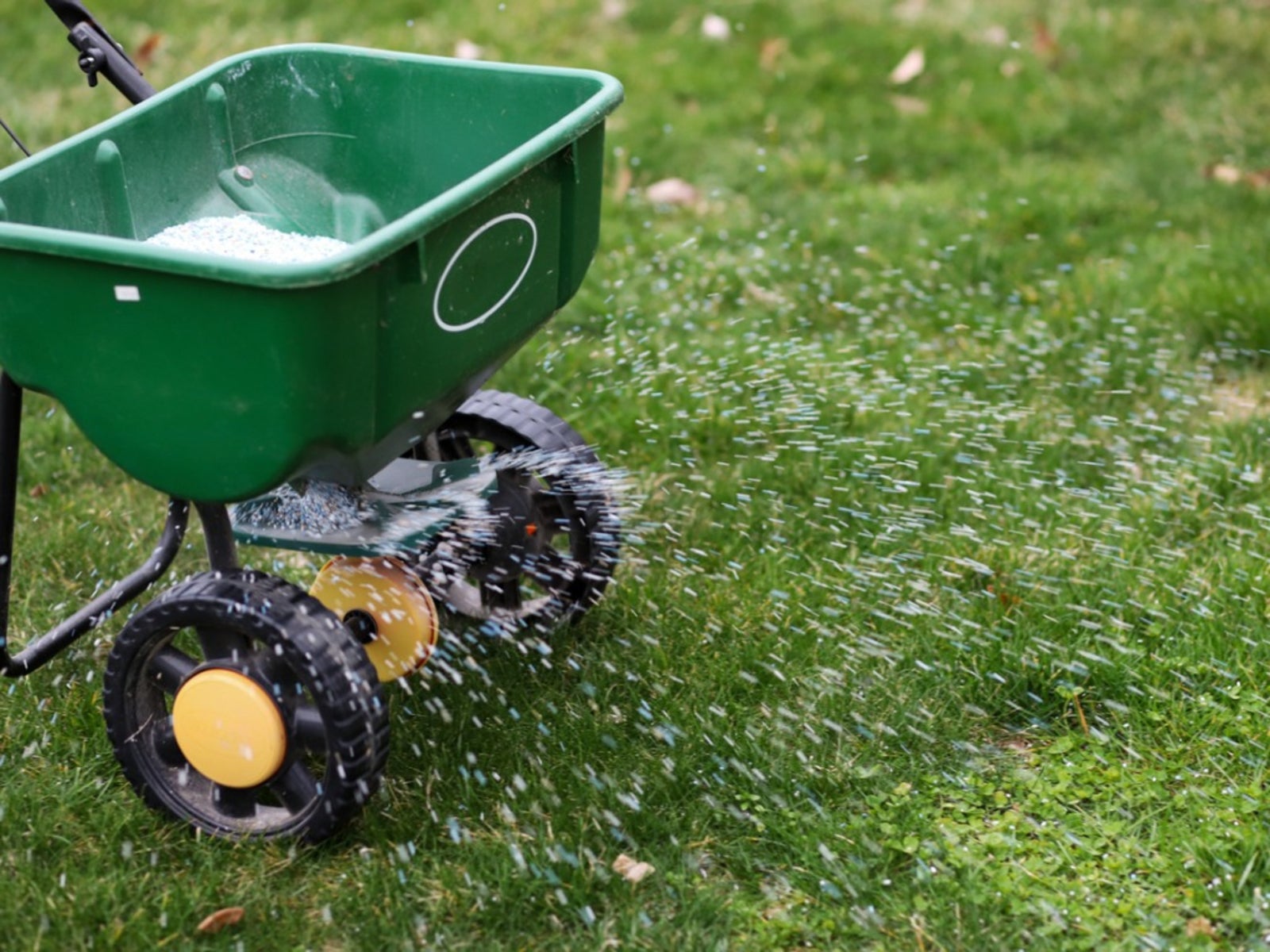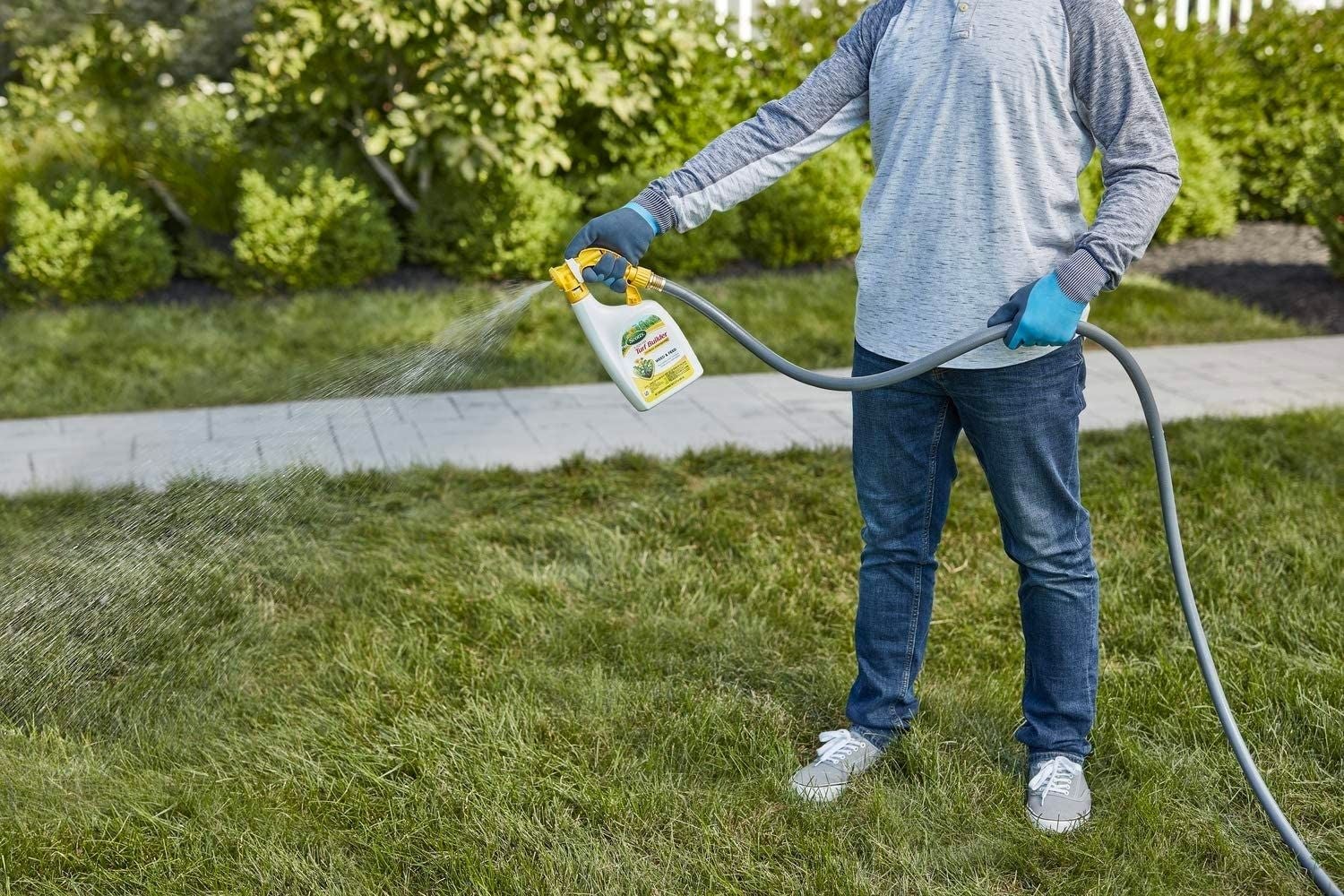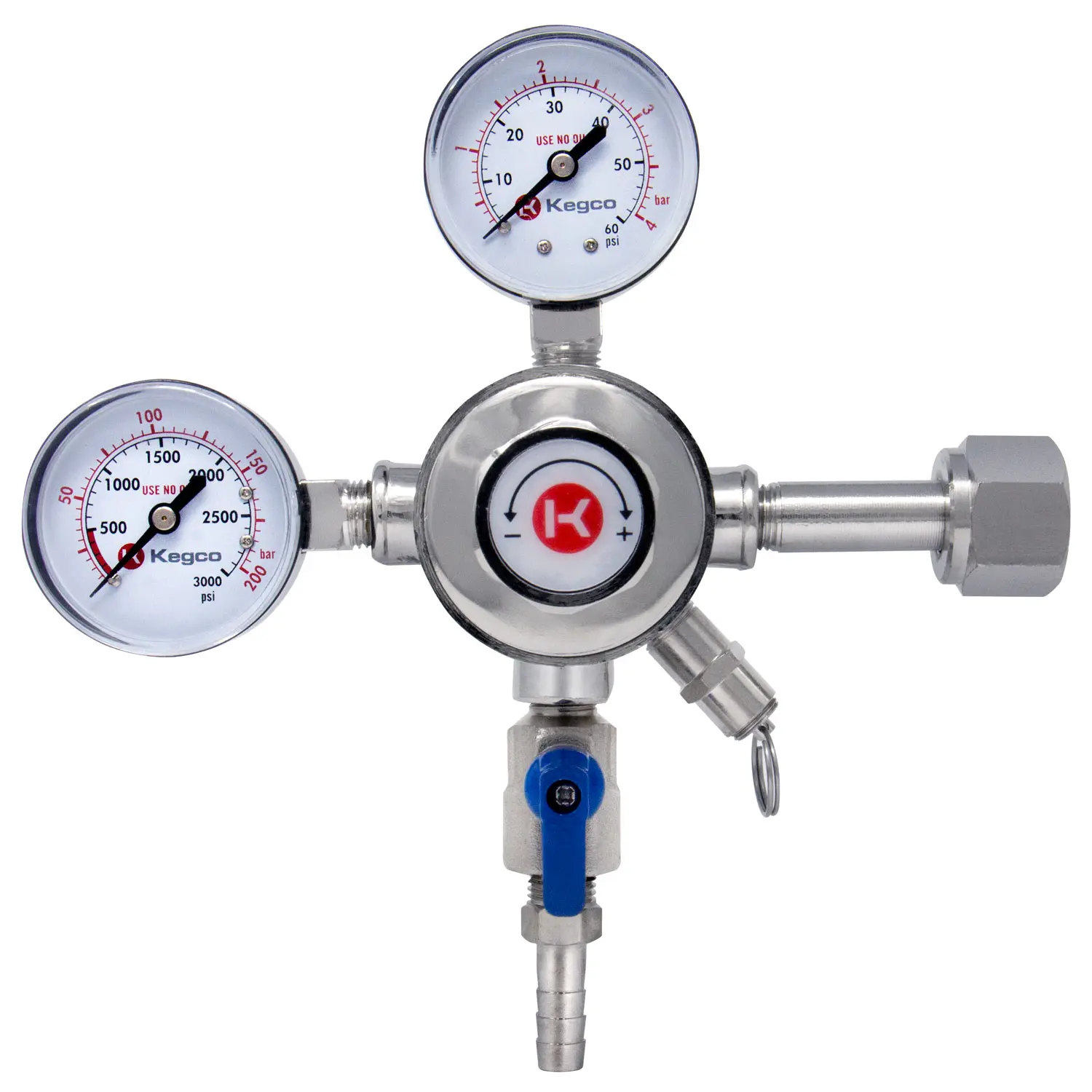Home>Garden Essentials>What Agencies Regulate Lawn Care Chemicals?


Garden Essentials
What Agencies Regulate Lawn Care Chemicals?
Modified: March 7, 2024
Discover which agencies regulate garden lawn care chemicals to ensure safety and compliance. Find out how these chemicals are monitored and controlled by authoritative organizations
(Many of the links in this article redirect to a specific reviewed product. Your purchase of these products through affiliate links helps to generate commission for Storables.com, at no extra cost. Learn more)
Introduction
When it comes to lawn care, many homeowners rely on the use of chemicals to control pests, weeds, and diseases. However, it is important to ensure that these chemicals are safe for use and that their application meets regulatory standards. This is where the role of regulatory agencies becomes crucial.
In the United States, several agencies play a vital role in regulating the use of lawn care chemicals to protect public health and the environment. These agencies enforce laws and regulations, establish guidelines for chemical use, and provide oversight to ensure compliance with safety measures. In this article, we will explore some of the main agencies responsible for regulating lawn care chemicals.
Key Takeaways:
- The EPA, USDA, and state agencies work together to make sure the chemicals used on lawns are safe for people, the environment, and workers. They set rules and provide education to keep everyone healthy and safe.
- Agencies like NIOSH and OSHA focus on protecting workers who handle lawn care chemicals. They study the risks, provide safety guidelines, and make sure employers follow rules to keep workers safe.
Environmental Protection Agency (EPA)
The Environmental Protection Agency (EPA) is a federal agency responsible for protecting human health and the environment. It plays a significant role in regulating lawn care chemicals and ensuring their safety. The EPA enforces the Federal Insecticide, Fungicide, and Rodenticide Act (FIFRA), which governs the registration, distribution, sale, and use of pesticides.
Under FIFRA, the EPA requires manufacturers of lawn care chemicals to submit extensive data on the product’s safety and effectiveness. This includes information on the chemical composition, toxicity levels, potential environmental impacts, and proper application techniques. The EPA reviews and evaluates this data to determine if the chemical meets the necessary standards for registration and use.
Once a lawn care chemical is registered by the EPA, it is assigned an EPA registration number, which indicates that it has been deemed safe for use when applied according to the label instructions. The EPA also establishes and enforces regulations on labeling requirements, including specific language for precautionary statements and directions for use.
Besides the registration process, the EPA regularly reviews and reassesses registered products to ensure they continue to meet safety and efficacy standards. If new information arises that suggests a potential risk, the EPA can reevaluate the registration and impose additional restrictions or even revoke the registration of the product.
In addition to regulating the use of lawn care chemicals, the EPA also conducts research and provides education to promote the safe and responsible use of these products. They collaborate with other agencies, state and local governments, and industry stakeholders to develop and implement best practices for pesticide use, storage, and disposal.
The EPA’s Office of Pesticide Programs (OPP) is specifically dedicated to overseeing the regulation of pesticides, including lawn care chemicals. The OPP conducts risk assessments, monitors pesticide residues in food and water, and educates the public on safe pesticide use.
Overall, the EPA plays a critical role in protecting the environment and public health by regulating the use of lawn care chemicals, ensuring they meet safety standards, and promoting responsible pesticide use through education and enforcement.
Federal Insecticide, Fungicide, and Rodenticide Act (FIFRA)
The Federal Insecticide, Fungicide, and Rodenticide Act (FIFRA) is a federal law in the United States that governs the registration, sale, distribution, and use of pesticides, including lawn care chemicals. It was enacted in 1947, and its primary objective is to protect human health and the environment from the potential risks associated with pesticide use.
Under FIFRA, anyone who manufactures, sells, or distributes pesticides is required to register their products with the Environmental Protection Agency (EPA) before they can be legally sold or used. The registration process involves submitting comprehensive data on the chemical composition, potential hazards, and efficacy of the pesticide.
The EPA reviews the information provided and evaluates whether the pesticide meets the necessary standards for registration. This includes an assessment of the pesticide’s toxicity to humans and non-target organisms, as well as its potential impact on the environment.
Once a pesticide is registered, it is assigned an EPA registration number, which serves as proof that the pesticide has met the required safety standards. The registration number must be displayed on all product labels and advertisements.
FIFRA also regulates the labeling and packaging requirements for pesticides. The law mandates that labels must include important information such as the product’s active ingredients, directions for use, precautions, and storage instructions. These labels serve as a vital source of information for users to ensure safe and effective pesticide application.
In addition to registration and labeling, FIFRA grants the EPA the authority to enforce compliance with pesticide regulations. The EPA conducts inspections, investigates complaints, and takes enforcement actions against violators of FIFRA. Penalties for non-compliance can include fines, product seizure, and even criminal charges.
FIFRA also requires the EPA to periodically reassess registered pesticides to ensure their continued safety and effectiveness. This involves reviewing new scientific information, conducting risk assessments, and taking appropriate regulatory action if warranted. If a pesticide is found to pose unacceptable risks, the EPA may impose additional restrictions on its use or revoke its registration altogether.
Overall, FIFRA is a crucial piece of legislation that provides a framework for the regulation and oversight of pesticides, including lawn care chemicals. It aims to safeguard human health and the environment while allowing for the responsible use of these products to maintain healthy and beautiful lawns and landscapes.
Office of Pesticide Programs (OPP)
The Office of Pesticide Programs (OPP) is a division of the Environmental Protection Agency (EPA) that is responsible for regulating and overseeing the use of pesticides, including lawn care chemicals, in the United States. The OPP plays a crucial role in ensuring the safety of pesticides and protecting public health and the environment.
One of the primary functions of the OPP is to assess the risks associated with pesticide use. This involves evaluating scientific data and conducting risk assessments to determine the potential adverse effects of pesticides on human health and the environment. The OPP evaluates various factors such as toxicity, exposure levels, and potential for environmental contamination to determine the risks posed by specific pesticides.
The OPP also conducts studies and research to gather additional information about pesticides and their impacts. This research helps in understanding the risks associated with different types of pesticides, identifying emerging issues, and developing strategies to mitigate those risks.
Based on their assessments and research findings, the OPP develops regulations and guidelines for the safe use of pesticides. These regulations cover various aspects, including labeling requirements, application techniques, and storage and disposal practices. The OPP works closely with pesticide manufacturers and stakeholders to ensure compliance with these regulations and to promote safe and effective pesticide use.
In addition to regulatory functions, the OPP provides education and outreach programs to inform the public, applicators, and agricultural workers about pesticide safety. They develop training materials, conduct workshops, and collaborate with other organizations to raise awareness about the proper handling, application, and disposal of pesticides. The aim is to mitigate potential risks and promote responsible pesticide use.
Furthermore, the OPP is responsible for conducting pesticide residue testing to monitor and assess the levels of pesticide residues in foods and drinking water. This helps in ensuring that pesticide use is in compliance with regulatory limits and that consumers are not exposed to excessive levels of pesticides through their diet.
The OPP also collaborates with state, tribal, and local agencies to ensure effective implementation of pesticide regulations across different jurisdictions. They provide guidance and support to these agencies and work together to develop coordinated approaches for pesticide management and enforcement.
Overall, the Office of Pesticide Programs plays a critical role in protecting public health and the environment by regulating pesticides, including lawn care chemicals. Through their risk assessments, research efforts, regulatory actions, and educational initiatives, the OPP strives to ensure that pesticides are used safely and responsibly, minimizing potential risks to both humans and the environment.
United States Department of Agriculture (USDA)
The United States Department of Agriculture (USDA) is a federal agency responsible for developing and implementing policies related to agriculture, food, and rural development. While the primary focus of the USDA is on agricultural production, it also plays a role in the regulation of lawn care chemicals and their impact on the environment and public health.
One of the key responsibilities of the USDA is to collaborate with other agencies, including the Environmental Protection Agency (EPA), in establishing and enforcing regulations related to the use of pesticides, including those used in lawn care. The USDA provides expertise and guidance on agricultural practices, pesticide application, and safety protocols.
The USDA’s Agricultural Research Service (ARS) conducts extensive research on pest management strategies, including the development and evaluation of new pesticide formulations, the study of pest biology and behavior, and the exploration of alternative pest control methods. This research helps to inform the development of effective and sustainable pest control strategies, including the use of lawn care chemicals.
The USDA also provides technical assistance and resources to promote integrated pest management (IPM) practices. IPM is an approach that aims to minimize the use of pesticides by employing a combination of preventive measures, beneficial insects, cultural practices, and targeted pesticide applications. The USDA’s resources help homeowners and professionals in the lawn care industry adopt sustainable and environmentally friendly pest control strategies.
In addition to its regulatory and research functions, the USDA also plays a role in ensuring the safety of the food supply. The agency is responsible for setting tolerances for pesticide residues on food and conducting monitoring programs to ensure that food products meet safety standards. This includes monitoring pesticide residues on fruits, vegetables, and other agricultural commodities.
Furthermore, the USDA’s Animal and Plant Health Inspection Service (APHIS) is responsible for regulating the import and export of plants, plant products, and pests. This includes ensuring that imported plants and nursery stock meet specific requirements and are not carrying harmful pests or diseases that could negatively impact domestic agriculture and landscapes.
Overall, the United States Department of Agriculture (USDA) plays a vital role in the regulation and oversight of lawn care chemicals, particularly in the context of their impact on agriculture and rural areas. Through research, technical assistance, and collaboration with other agencies, the USDA helps to ensure the safe and sustainable use of pesticides in lawn care practices.
The Environmental Protection Agency (EPA) and the Department of Agriculture (USDA) regulate lawn care chemicals to ensure they are safe for the environment and human health. Always look for products with their approval.
Read more: What Is A Showerhead Flow Regulator
National Institute for Occupational Safety and Health (NIOSH)
The National Institute for Occupational Safety and Health (NIOSH) is a federal agency that is part of the Centers for Disease Control and Prevention (CDC). While the primary focus of NIOSH is on occupational safety and health, it also plays a role in the regulation of lawn care chemicals and their potential impacts on workers who handle these substances.
NIOSH conducts research and provides guidance on the safe handling and use of chemicals, including those used in lawn care. The agency works to identify potential health hazards associated with chemical exposure and develops guidelines and recommendations to protect workers from these hazards.
One key area of focus for NIOSH is the prevention of occupational illness and injury related to pesticides. The agency studies the effects of pesticide exposure on workers and develops strategies to minimize occupational risks. They provide recommendations for proper personal protective equipment (PPE) usage and advocate for safe work practices to minimize exposure.
NIOSH also conducts research to better understand the long-term health effects of exposure to lawn care chemicals. This research helps to inform occupational health standards and guidelines to protect workers in the landscaping and lawn care industry.
In addition, NIOSH collaborates with other regulatory agencies, such as the Environmental Protection Agency (EPA) and the Occupational Safety and Health Administration (OSHA), to develop joint programs and initiatives aimed at protecting workers from the potential hazards of pesticides and other chemicals.
The agency also provides training and educational resources to workers and employers in the lawn care industry. This includes guidelines on proper handling and storage of lawn care chemicals, as well as instruction on the use of personal protective equipment and other safety procedures to mitigate pesticide exposure risks.
Furthermore, NIOSH conducts surveillance and monitoring programs to identify emerging occupational health issues related to pesticide exposure. This includes conducting health hazard evaluations in workplaces and assessing the effectiveness of existing safety measures in protecting workers from chemical hazards.
Overall, the National Institute for Occupational Safety and Health (NIOSH) plays a crucial role in safeguarding the health and safety of workers who handle lawn care chemicals. Through research, recommendations, and collaboration with other agencies, NIOSH helps to develop and promote best practices to minimize occupational risks and protect workers in the landscaping and lawn care industry.
Occupational Safety and Health Administration (OSHA)
The Occupational Safety and Health Administration (OSHA) is a federal agency within the United States Department of Labor. OSHA’s primary mission is to ensure safe and healthy working conditions for employees across various industries, including those involved in lawn care and landscaping.
OSHA sets and enforces standards to protect workers from occupational hazards, including those related to the handling and use of chemicals in the workplace. This includes lawn care chemicals used by professionals in the industry.
One of OSHA’s key responsibilities is to develop and enforce regulations that govern the safe handling and use of chemicals in the workplace. These regulations cover areas such as hazard communication, personal protective equipment (PPE), and exposure control measures.
OSHA’s hazard communication standard, also known as the “Right-to-Know” standard, requires employers to provide employees with information about the hazardous chemicals they work with. This includes lawn care chemicals. Employers must maintain proper labeling on containers, provide Safety Data Sheets (SDS), and ensure that employees are trained on the potential hazards of the chemicals they handle.
OSHA also mandates the use of personal protective equipment (PPE) when dealing with hazardous chemicals. This includes gloves, respiratory protection, eye protection, and other equipment designed to minimize exposure and protect workers from potential hazards.
In addition to regulatory functions, OSHA provides education, training, and assistance to employers and workers in various industries, including lawn care and landscaping. The agency offers resources, guidance, and training programs to help employers develop effective safety programs and ensure compliance with OSHA standards.
OSHA conducts inspections and investigations to ensure that employers are providing a safe working environment for their employees. This includes examining the storage, handling, and use of chemicals, including lawn care chemicals, to identify potential hazards and ensure compliance with safety standards.
If an employer is found to be in violation of OSHA standards, the agency can take enforcement actions, which may include citations, fines, and penalties. OSHA’s enforcement efforts help to hold employers accountable and promote a safe working environment for employees.
Overall, the Occupational Safety and Health Administration (OSHA) plays a critical role in regulating workplace safety, including the handling and use of chemicals in the lawn care industry. Through the development and enforcement of standards, along with education and assistance programs, OSHA helps to protect workers from occupational hazards and promote a culture of safety in the workplace.
State and Local Agencies
In addition to federal agencies, state and local governments also play a significant role in regulating the use of lawn care chemicals. These agencies work in conjunction with federal regulations to enforce and develop policies specific to their respective jurisdictions.
State departments of agriculture and environmental protection are often responsible for overseeing and regulating the use of pesticides, including lawn care chemicals, within their states. They may have their own pesticide registration and licensing requirements, as well as specific regulations for pesticide application and storage.
State agencies often collaborate with federal agencies, such as the Environmental Protection Agency (EPA), in enforcing pesticide regulations and ensuring compliance with safety standards. They can conduct inspections, investigations, and monitor pesticide use in their jurisdictions to ensure that proper protocols are being followed.
Local agencies, such as county or municipal departments, may also have specific regulations in place for the use of lawn care chemicals. They may enforce zoning ordinances to control the use of certain pesticides in residential areas or establish guidelines for the proper disposal of empty pesticide containers.
State and local agencies can also offer resources, education, and training programs to homeowners and professionals in the lawn care industry. This includes information on integrated pest management (IPM) practices, alternative pest control methods, and best practices for safe pesticide use.
Some states have certification and licensing programs for pesticide applicators. These programs ensure that individuals applying lawn care chemicals have the necessary knowledge and training to do so safely. Applicators may be required to obtain a license, take regular continuing education courses, or pass exams to maintain their certification.
In addition, state and local agencies may have reporting requirements for pesticide use. Pesticide applicators, including those in the lawn care industry, may need to keep records of the chemicals used, application rates, and the areas treated. This information helps regulators monitor pesticide usage and assess potential environmental and public health impacts.
Overall, state and local agencies play a crucial role in supplementing federal regulations and enforcing the safe use of lawn care chemicals within their jurisdictions. Through collaboration, education, and specific regulations, these agencies help to protect public health and the environment at the local level.
Conclusion
When it comes to the regulation of lawn care chemicals, a comprehensive system of agencies at the federal, state, and local level exists to ensure their safe and responsible use. Federal agencies such as the Environmental Protection Agency (EPA) and the Occupational Safety and Health Administration (OSHA) have the primary responsibility of establishing and enforcing regulations to protect human health and the environment.
The EPA, under the Federal Insecticide, Fungicide, and Rodenticide Act (FIFRA), is responsible for registering and regulating the sale and use of lawn care chemicals. They review extensive scientific data and set safety standards for these chemicals. The Office of Pesticide Programs (OPP) within the EPA focuses specifically on the regulation of pesticides and promotes safe and effective pesticide use through education and enforcement.
The USDA collaborates with other agencies to regulate the use of lawn care chemicals in the context of agriculture and rural development. Their research and technical assistance help develop sustainable pest management strategies, including integrated pest management (IPM), to minimize reliance on pesticides.
Occupational safety and health agencies like NIOSH and OSHA work to protect workers who handle lawn care chemicals. NIOSH conducts research and provides recommendations for worker safety, while OSHA develops and enforces workplace safety regulations.
At the state and local level, departments of agriculture and environmental protection work alongside federal agencies, enforcing regulations, issuing licenses, and providing education and training for homeowners and professionals in the lawn care industry. They collaborate with federal agencies to monitor compliance and protect public health and the environment.
In conclusion, the regulation of lawn care chemicals involves a multi-agency approach, prioritizing public health, environmental protection, and worker safety. Through the collective efforts of these agencies, we can enjoy beautifully manicured lawns while ensuring the well-being of our environment, communities, and the individuals who work in the lawn care industry.
Frequently Asked Questions about What Agencies Regulate Lawn Care Chemicals?
Was this page helpful?
At Storables.com, we guarantee accurate and reliable information. Our content, validated by Expert Board Contributors, is crafted following stringent Editorial Policies. We're committed to providing you with well-researched, expert-backed insights for all your informational needs.















0 thoughts on “What Agencies Regulate Lawn Care Chemicals?”